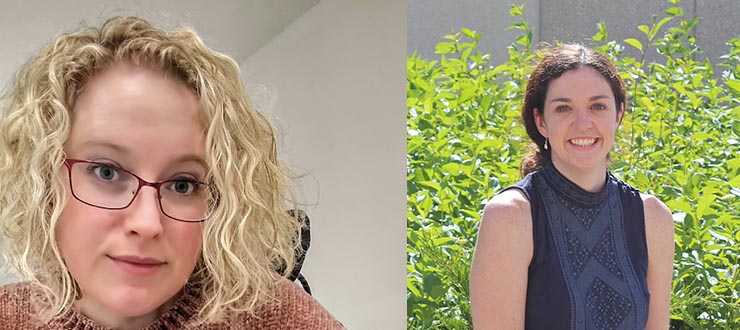
When Jenna Keindel was 16 years old, she was diagnosed with muscular dystrophy – a diagnosis that would change the course of her life not once, but twice.
Muscle biopsies and years of progressive muscle weakness in Jenna’s shoulders, hips and neck led doctors at The Ottawa Hospital to believe she had limb-girdle muscular dystrophy (LGMD), a rare type of muscular dystrophy with numerous genetic subtypes.
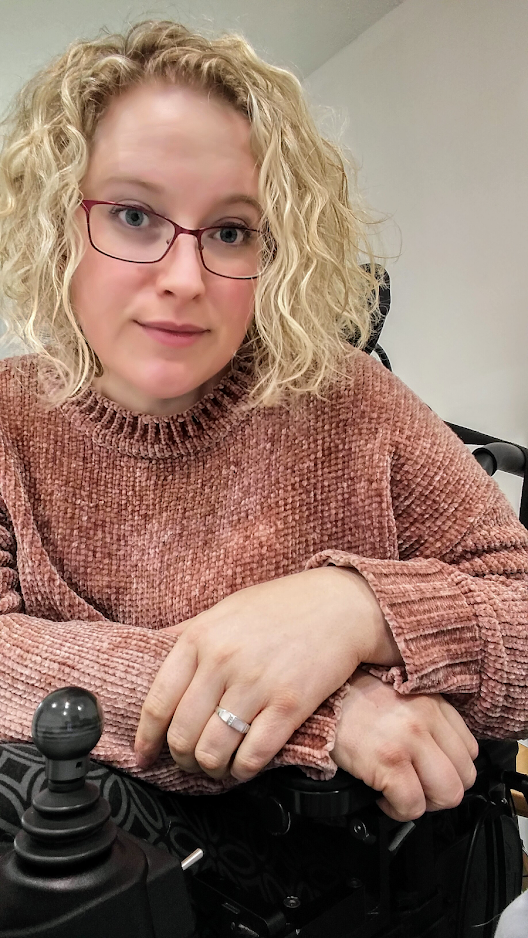
However, doctors couldn’t identify the exact gene that was causing the disease – so the LGMD diagnosis was their best assumption. Without an exact genetic subtype, Jenna and her doctors couldn’t predict how the disease would progress over time.
“Because there are so many variations of limb-girdle muscular dystrophy, my doctors couldn’t tell me what to expect other than my muscles are going to keep getting worse and unfortunately, there’s no cure,” explained Jenna, who is now 40 and living with her family in Shawville, QC. “The only missing link to my diagnosis were the genes.”
In the years that followed her diagnosis, Jenna’s muscles continued to weaken and eventually she began using a wheelchair. And the search for a genetic subtype continued.
Finding a new diagnosis in an unlikely place
Jenna became involved in several muscular dystrophy Facebook groups. There she found peer support, resources and general information, and occasionally members would share links to new studies or research on muscular dystrophy.
In January 2019, Jenna’s trusted friend, who also had LGMD, posted a research article in one of the groups that caught Jenna’s attention.
“It said, ‘Limb-girdle muscular dystrophy mimics autoimmune disorder.’ I read it and it sounded like my story,” said Jenna.
“In Jenna’s case, it is quite profound that the availability of that article changed the course of her diagnosis and her subsequent treatment and overall quality of life.”
Jenna immediately sent the article to Dr. Jodi Warman, a neurologist at The Ottawa Hospital who has cared for Jenna for many years. While the autoimmune disorder didn’t quite fit with Jenna’s medical history, Dr. Warman was happy to order the test.
To their surprise, Jenna tested positive for the autoimmune disorder – and not just positive – highly positive.
“I was shocked,” said Jenna.
A renewed sense of hope
With the new diagnosis, Jenna’s life changed course once more. But this time, Jenna felt a renewed sense of hope for the future and had a clear treatment plan that included immunosuppressants. She is looking forward to starting physiotherapy at The Ottawa Hospital’s Rehab Centre.
“I’m not going to get worse, which is good because before I was just declining… There’s potential for improvements and muscles that can get stronger,” said Jenna. “If I have to use a wheelchair but can even just stand to reach for a box of cereal on the top shelf, and then sit back down, that would be tremendous to me.”
Open Science: Making research accessible to everyone
Jenna accessed the study that changed her diagnosis, and life, thanks in part to a movement that’s gaining momentum in the research community: Open Science.
Open Science is both a movement and a practice to make the research process more transparent and ensure its findings are accessible to everyone. Through adopting Open Science practices in their day-to-day routine, researchers can make their studies more reproducible, accessible and transparent. Practicing Open Science includes creating detailed research protocols, and making the data and results of research studies, including research papers, publicly available.
“I’m grateful for open science for pointing the study towards me, so my job now is to advocate further and encourage others to do the same thing.”
Historically, those looking to access research have faced numerous obstacles. Limited data sharing and inaccessible records, highly technical language and publication of findings behind paywalls are just a few of the challenges that have kept research from being shared with the wider research community and patients.
The motives and benefits for pursuing Open Science are many.
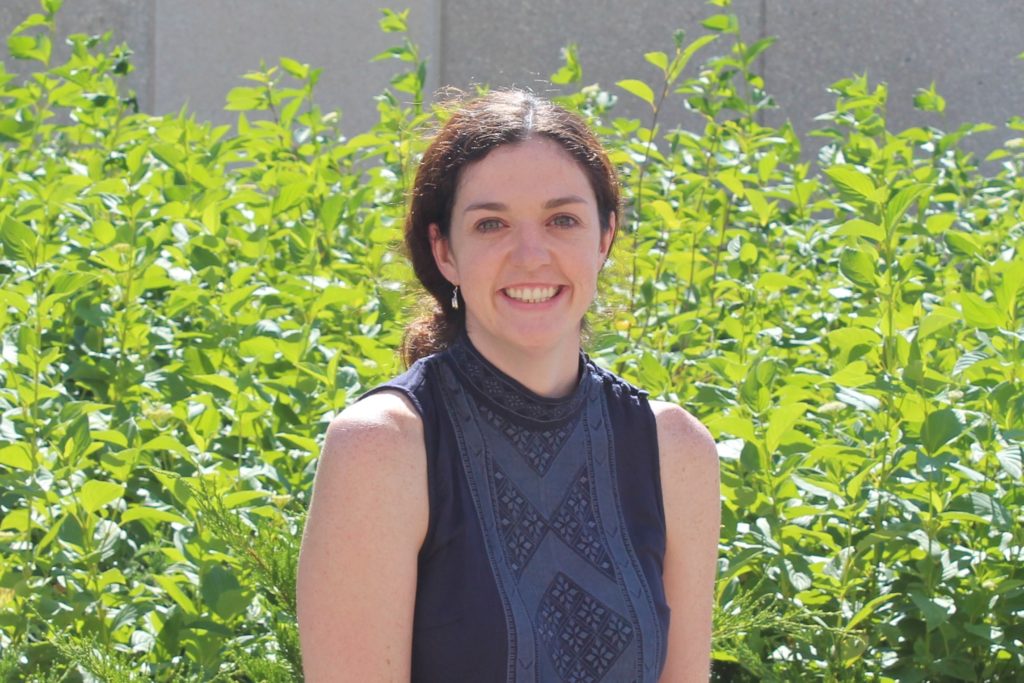
“From a research integrity perspective, Open Science practices embed transparency. It allows us to track a research project from start to finish. We can actually have evidence that researchers got ethical approval, collected data and we can actually see that data,” explained Dr. Kelly Cobey, an Open Science expert and Publications Officer with The Ottawa Hospital’s Centre for Journalology. “Another perspective is from the reproducibility view. Open Science allows researchers to replicate what other researchers have done to see if the finding is robust. With data sharing, you can replicate the analysis to see if results match up. In the absence of open data, there’s no way to do that.”
How The Ottawa Hospital is investing in Open Science
While Open Science practices are still in the early stages of adoption in institutions across Canada, The Ottawa Hospital is taking major steps to invest in supports for researchers.
As a Publications Officer, Dr. Cobey helps researchers at The Ottawa Hospital, CHEO and the University of Ottawa Heart Institute navigate the complex processes to publish their research. She spends her days consulting with researchers, giving seminars and helping to develop policies and partnerships that promote Open Science.
Data sharing among researchers can lead to innovation and discoveries more rapidly than it otherwise would. In health care, it could mean faster access to treatments or cures for rare diseases
The Centre itself, which opened in 2015, is believed to be the first of its kind in the world. “It’s exceptionally rare to have that built-in support for publishing and Open Science practices,” explained Dr. Cobey. “The Ottawa Hospital is a step ahead in that we recognize Open Science’s value and have created core resources for researchers to use. We are working to create a culture change so that Open Science practices become a norm rather than an exception”
The Ottawa Hospital can support resources like the Centre thanks to generous donations to The Ottawa Hospital Foundation.
“I’m grateful for Open Science”
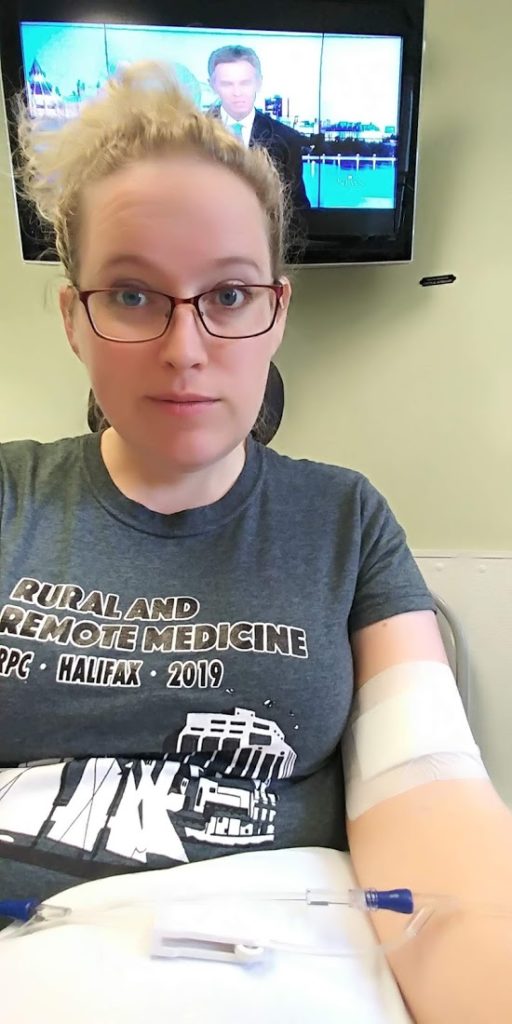
Perhaps the most significant benefits of Open Science practices are experienced by patients.
Data sharing among researchers can lead to innovation and discoveries more rapidly than it otherwise would. In health care, it could mean faster access to treatments or cures for rare diseases. Additionally, the simple act of giving patients access to research means they can become more empowered in their care.
“In Jenna’s case, it is quite profound that the availability of that article changed the course of her diagnosis and her subsequent treatment and overall quality of life,” said Dr. Cobey. “It’s truly incredible that she’s regaining muscle ability that she was losing everyday.”
“Had I not seen the article, I don’t think I would be on this new path,” said Jenna.
With treatment underway and a proper diagnosis in hand, Jenna now focuses on encouraging others with muscular dystrophy to engage with the research that’s currently available – whether it’s just by sending it to their doctors for consideration or taking a new test.
“To finally have a piece of paper that led me to a new path that within six weeks was like, ‘Here’s your diagnosis, and by the way you start treatment,’ to have that hope is tremendous,” said Jenna. “I’m grateful for Open Science for pointing the study towards me, so my job now is to advocate further and encourage others to do the same thing.”
Learn more about Open Science
Are you interested in learning more about Open Science and how The Ottawa Hospital is trying to make sure our research is conducted with transparency and patients like Jenna at the forefront? Tune into our Facebook Live event on March 30 to hear from Dr. Cobey and others who are working to push the Open Science movement forward.
Event details:
- Date and time: March 30, 12 p.m. to 1 p.m. ET
- Location: The Ottawa Hospital Facebook page
Note: If you were not able to attend the live event, you can watch the recording.

Support patient care and research at
The Ottawa Hospital
You might also like…
New Research Chair in Gay Men’s Health is setting out to break down barriers to care
As both a researcher and a gay man, Dr. Paul MacPherson knows all too well the stigma that gay men often face in the health-care system. Now, as the Clinical Research Chair in Gay Men’s Health at The Ottawa Hospital and the University of Ottawa, he’s on a mission to make quality health care more accessible to this often overlooked patient population.
How patients and family members are helping to infuse pride into The Ottawa Hospital’s DNA
Learn about four initiatives spearheaded by our Rainbow Patient and Family Advisory Committee (PFAC) that are helping to create safer spaces for the 2SLGBTQ+ community.
Made-in-Ottawa tool helps decide when critically ill patients can breathe on their own
Over the past two years of the pandemic, more Canadians than ever have required mechanical ventilation to help them breathe. The Ottawa Hospital is the first hospital in the world to evaluate an innovative medical device that uses artificial intelligence to predict when critically ill patients are ready to breathe on their own.
How to talk to your doctor: Tips to make difficult conversations a little easier
Do you ever feel nervous about talking to your doctor? A doctor and a patient advisor from The Ottawa Hospital share practical tips to help make difficult conversations a little bit easier.
Dream vacation becomes nightmare after COVID-19 strikes
Sun and sand turned to fear and uncertainty when Jim and Joanne Booth, married for 57 years, tested positive for COVID-19 in March 2020. Read about their journey back home to receive life-saving care at The Ottawa Hospital.
Giving every COVID-19 patient the chance to participate in research
Since the beginning of the pandemic, Irene and Rebecca have been on the front lines explaining all the available clinical trials to these patients and their families, often during those first difficult days of hospitalization.


 To reset, hold the Ctrl key, then press 0.
To reset, hold the Ctrl key, then press 0.
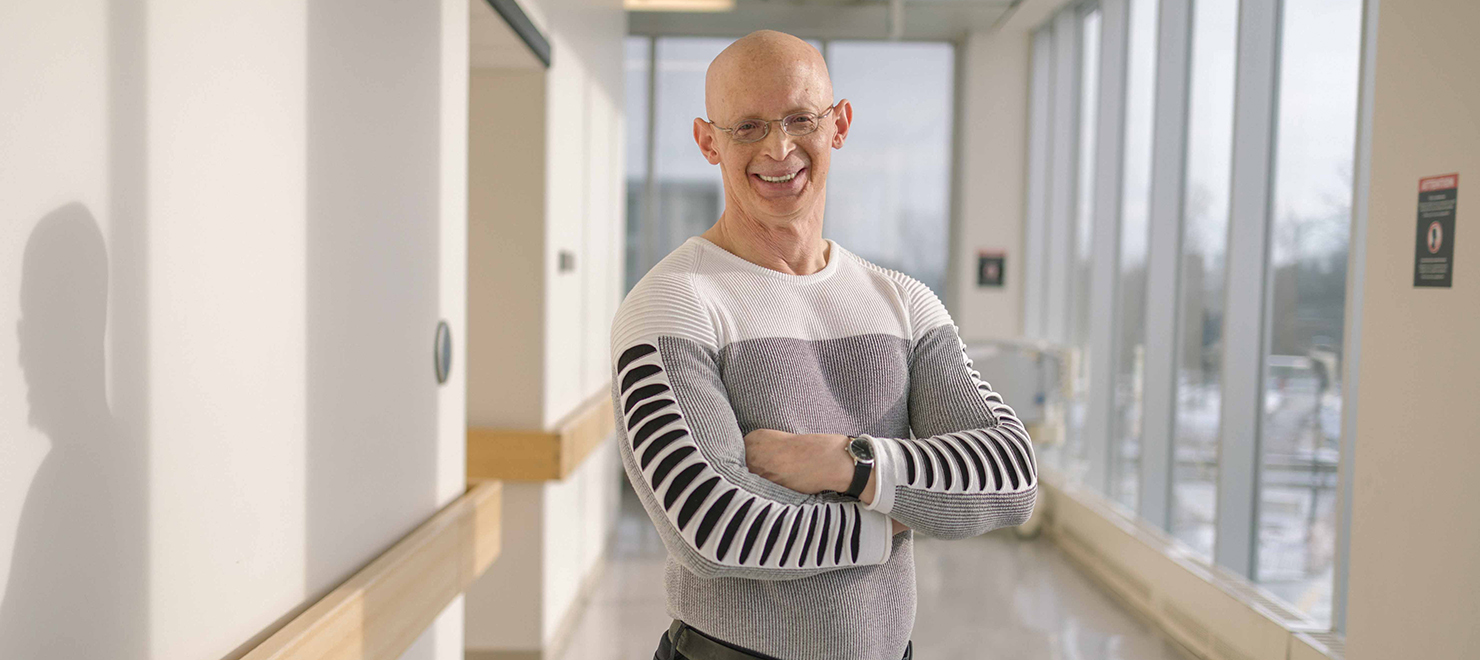

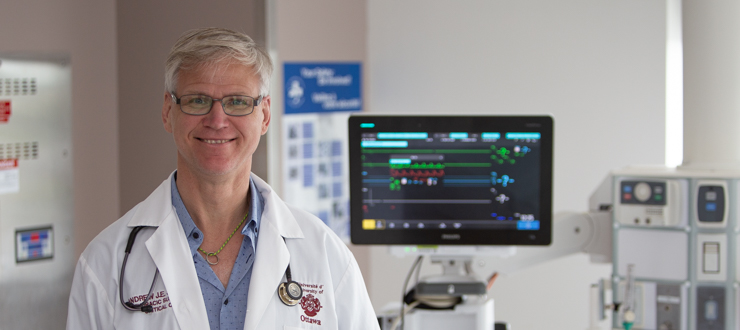
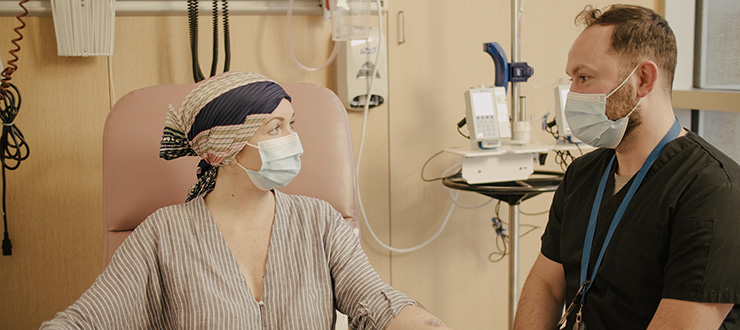
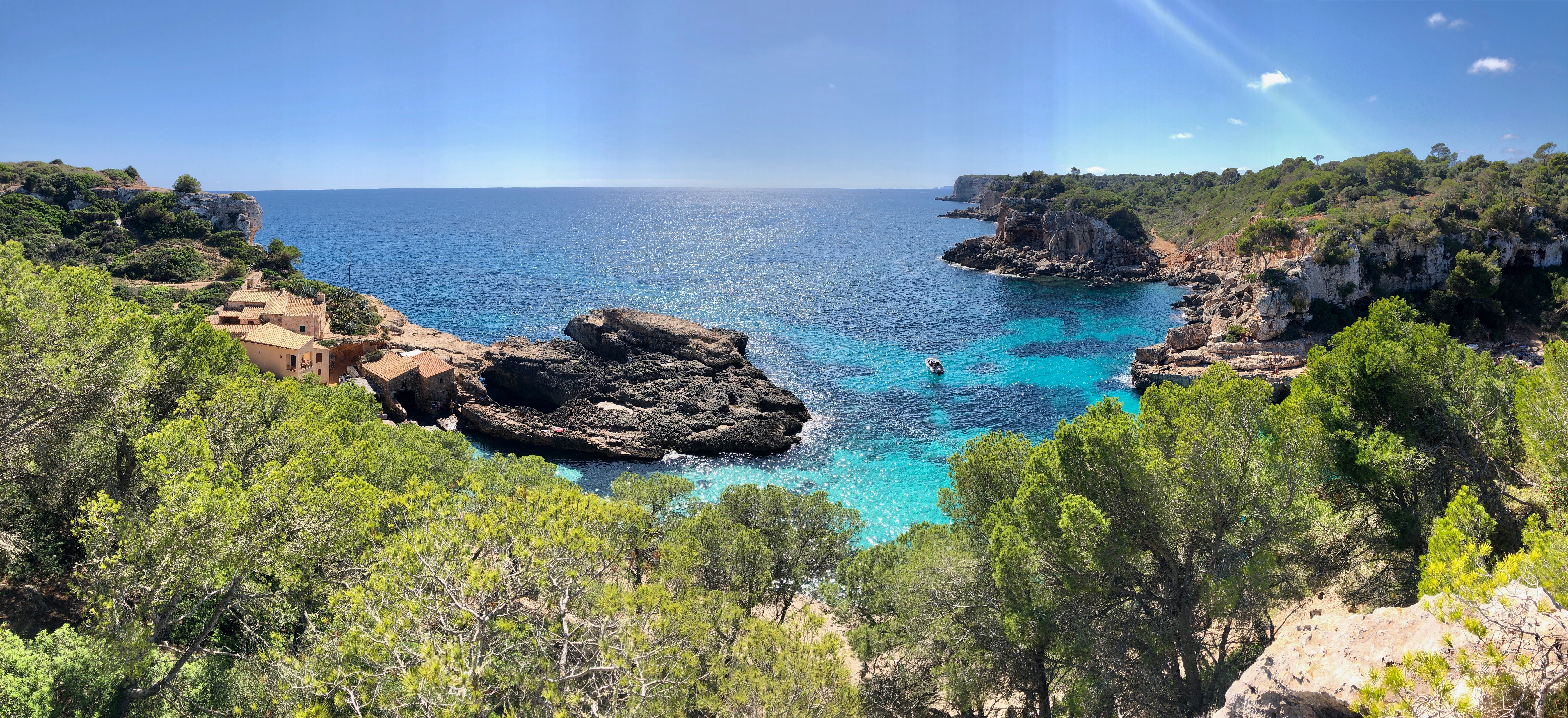
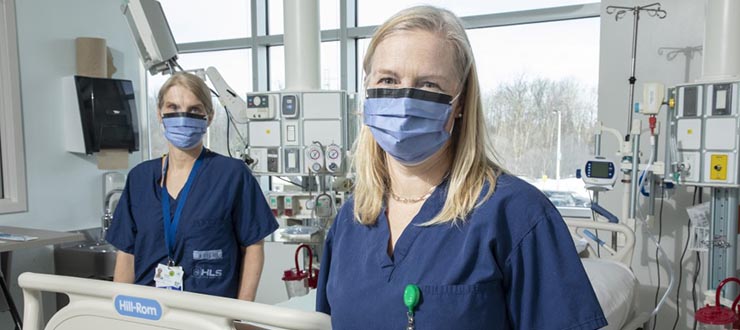
Comment on this post